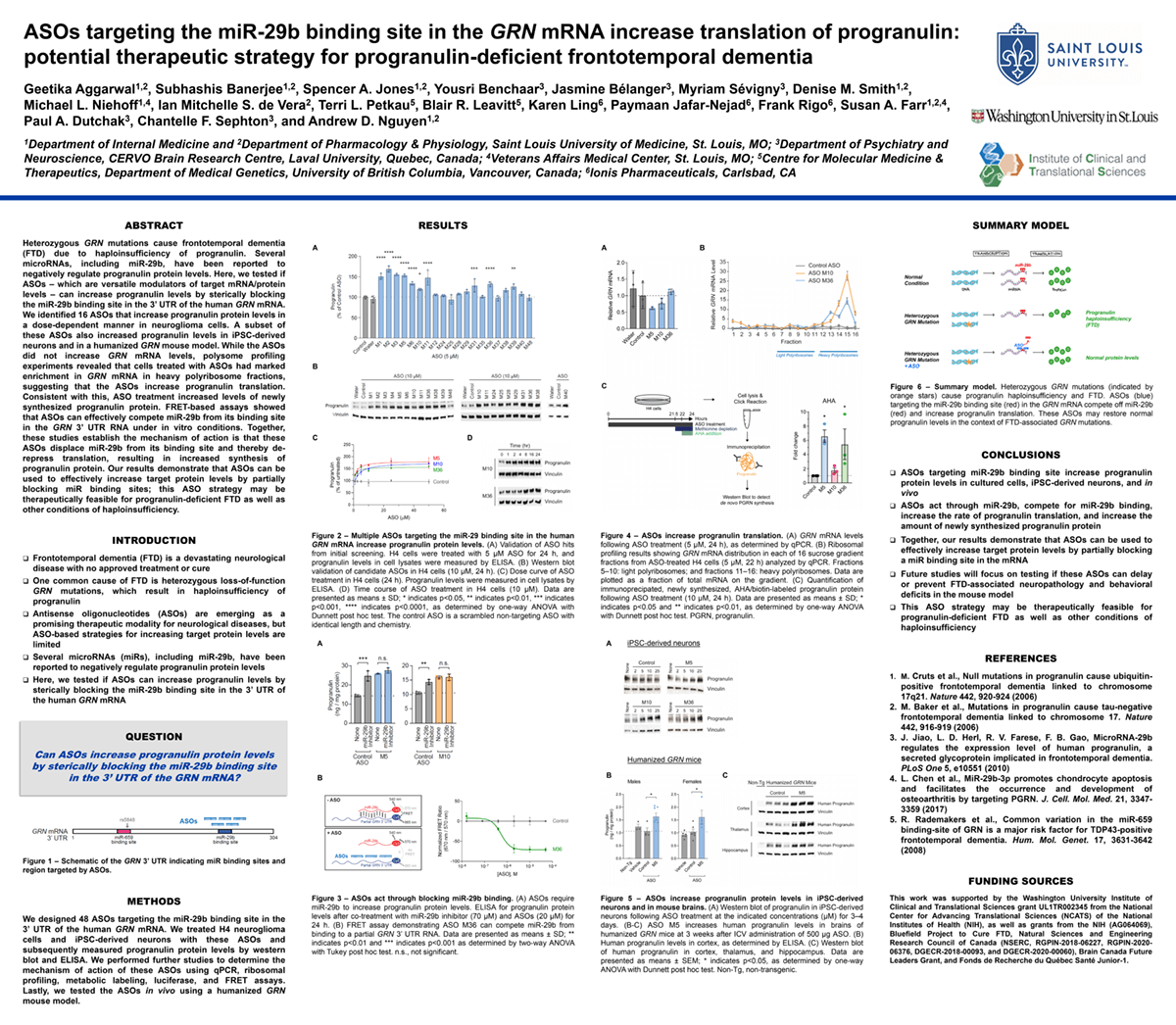
Introduction: Frontotemporal dementia (FTD) is a devastating neurological disease with no approved treatment or cure. One common cause of FTD is heterozygous loss-of-function GRN mutations, which result in haploinsufficiency of progranulin. Antisense oligonucleotides (ASOs) are emerging as a promising therapeutic modality for neurological diseases, but ASO-based strategies for increasing target protein levels are limited. Several microRNAs (miRs), including miR-29b, have been reported to negatively regulate progranulin protein levels. Here, we tested if ASOs can increase progranulin levels by sterically blocking the miR-29b binding site in the 3′ UTR of the human GRN mRNA.
Methods: We designed 48 ASOs targeting the miR-29b binding site in the 3′ UTR of the human GRN mRNA. We treated H4 neuroglioma cells and iPSC-derived neurons with these ASOs and subsequently measured progranulin protein levels by western blot and ELISA. We performed further studies to determine the mechanism of action of these ASOs using qPCR, ribosomal profiling, metabolic labeling, and FRET assays. Lastly, we tested the ASOs in vivo using a humanized GRN mouse model.
Results: We found 16 ASOs that increase progranulin protein levels in a dose-dependent manner in neuroglioma cells. A subset of these ASOs also increased progranulin levels in iPSC-derived neurons and in a humanized GRN mouse model. In FRET-based assays, the ASOs effectively competed miR-29b from binding to the GRN 3′ UTR RNA. The ASOs increased levels of newly synthesized progranulin protein by increasing its translation, as revealed by ribosomal profiling. Together, our results demonstrate that ASOs can be used to effectively increase target protein levels by partially blocking miR binding sites.
Impact: The results of our translational project suggest that our ASO strategy may be a therapeutically feasible method for increasing CNS progranulin levels for progranulin-deficient FTD. Moreover, this strategy could be useful for development of ASO-based therapies for other diseases of haploinsufficiency. The impact of this project may include enabling development of a drug for treatment of progranulin-deficient FTD, improving quality of life, and reducing societal and financial cost of illness.
Organization: Saint Louis University
Nguyen AD, Aggarwal G, Banerjee S, Jones SA, Smith DM, Benchaar Y, Belanger J, Sevigny M, Pavlack M, Niehoff ML, de Vera IMS, Petkau TL, Leavitt BR, Ling K, Jafar-Nejad P, Rigo F, Morley JE, Farr SA, Dutchak PA, Sephton CF